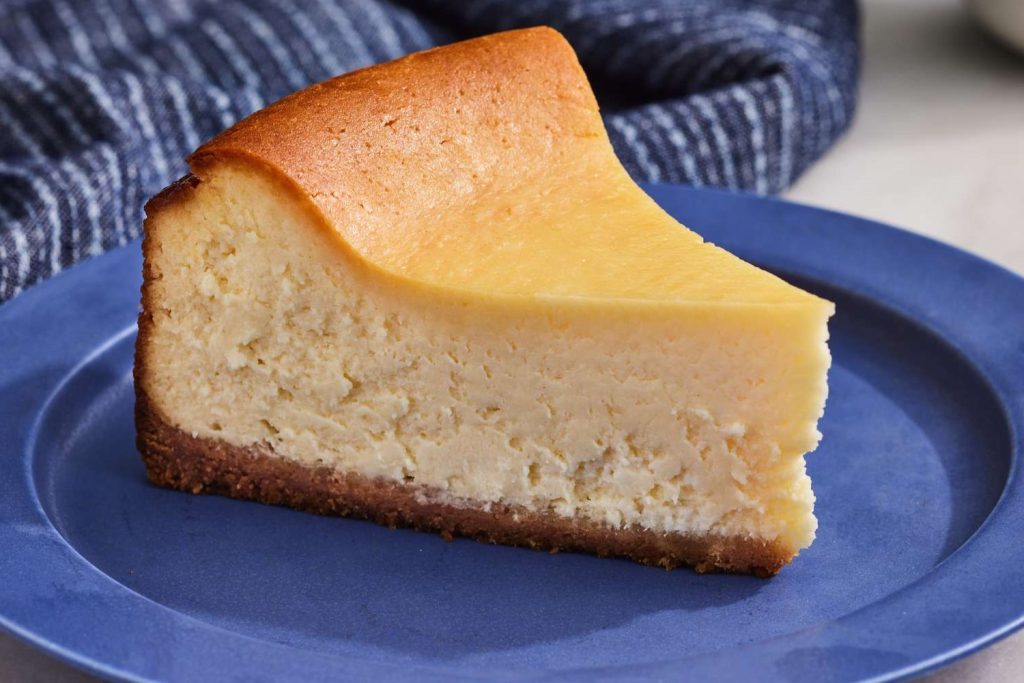Who doesn't love a slice of creamy, rich cheesecake? From its humble beginnings in ancient Greece to becoming a staple at American celebrations, cheesecake has traveled through time and across continents to secure its place in our hearts and on our tables. National Cheesecake Day, celebrated on July 30, isn't just another food holiday; it's a nod to this dessert's incredible journey and its ability to bring people together. With origins shrouded in mystery, some believe it began as a clever marketing ploy in the 1970s. Yet, this day has grown into something much more, reflecting cheesecake's evolution from a simple mixture of cheese, eggs, and honey to the dazzling array of flavors we find today. Whether you're a fan of the dense and creamy New York-style or the light and airy versions, there's no denying the universal appeal of cheesecake.
Key Takeaway
Day Activities
-
Baking Contests: On National Cheesecake Day, communities often host baking contests, inviting both amateur and professional bakers to whip up their best cheesecake recipes. These contests not only stir up some friendly competition but also showcase a variety of flavors, from the classic New York-style to inventive creations that push the boundaries of this beloved dessert.
-
Cheesecake Sampling Events: Many bakeries and restaurants jump into the festivities by offering special cheesecake sampling events. Patrons can indulge in bite-sized portions of different cheesecake varieties, discovering new favorites while mingling with fellow dessert enthusiasts. It's a sweet way to explore the diverse world of cheesecakes without overloading on sugar.
-
DIY Cheesecake Workshops: For those eager to learn the art of cheesecake making, some spots organize DIY workshops on July 30. These hands-on sessions provide participants with the chance to learn from experienced bakers, covering everything from the basics of crust preparation to the secrets behind that perfectly smooth and creamy filling. It's an ideal activity for anyone looking to elevate their baking skills or simply have fun experimenting in the kitchen.
Interesting Facts
1. Ancient Greek Origins
Cheesecake traces back to ancient Greece, with a recipe from the 2nd century AD.
2. Roman Adoption
Romans called it "libum", spreading its popularity across Europe.
3. Medieval European Evolution
In medieval Europe, cheesecake recipes began including sugar and fruit.
4. American Popularity Surge
In the U.S., cheesecake became a hit, especially New York-style in the 1930s-1940s.
5. National Cheesecake Day
Celebrated on July 30, National Cheesecake Day honors this beloved dessert's rich history.
Why We Love This Day
-
Celebrating a Sweet Slice of History: National Cheesecake Day isn't just about indulging in a slice; it's a nod to cheesecake's journey from ancient Greece to modern dessert menus. This day serves as a delicious reminder of how a simple dish can evolve over centuries, adapting to various cultures and tastes. It's a chance to appreciate the rich, creamy dessert that has captured hearts worldwide, making it more than just a treat—it's a piece of culinary history.
-
A Reason to Indulge: Let's face it, we all love an excuse to eat dessert, and National Cheesecake Day provides the perfect one. On this day, cheesecake lovers unite in their shared passion for this creamy, decadent dessert. Whether you're a fan of the classic New York-style, a rich chocolate lover, or someone who enjoys fruity flavors, there's a cheesecake out there calling your name. It's a day when counting calories is put on hold, and the focus is on savoring every bite.
-
Creative Culinary Inspiration: For those who love to get creative in the kitchen, National Cheesecake Day is like a playground. It encourages bakers, both novice and experienced, to experiment with new flavors, techniques, and presentations. From traditional recipes to avant-garde creations, this day sparks culinary creativity, leading to the birth of unique cheesecake variations. It's a time when social media feeds are flooded with mouthwatering images, inspiring others to whip up their own cheesecake masterpieces.
Past & Future Dates
| Month | Day | Year |
|---|---|---|
| JULY | 30 | 2022 |
| JULY | 30 | 2023 |
| JULY | 30 | 2024 |
| JULY | 30 | 2025 |
| JULY | 30 | 2026 |
| JULY | 30 | 2027 |
| JULY | 30 | 2028 |
FAQ
What national day is July 30th?
July 30th is chock-full of celebrations, including National Climb a Mountain Day, National Whistleblower Day, National Father-in-Law Day, and last but not least, National Cheesecake Day.
Why is cheesecake Day celebrated?
National Cheesecake Day sings praises to that decadent dessert we all adore. It’s a perfect excuse to indulge in everything from the classic New York-style cheesecake to those topped with berries or drizzled with caramel. Basically, it's dessert lovers' free pass to savor a slice (or two) of creamy goodness.
Is there such thing as cheesecake Day?
Absolutely! Every July 30th, cheesecake takes the spotlight. It's a day for folks to whip up their favorite recipe or dash to their local bakery to grab a slice of this creamy, dreamy dessert. So, yeah, cheesecake lovers, circle that date on your calendars!
What was cheesecake originally called?
Back in the day, cheesecake started its journey known as “libum”, way different from what we drool over today. This ancient recipe called for a mash-up of cheese, flour, and an egg, baked under a brick – quite the rustic beginnings for our beloved dessert.
